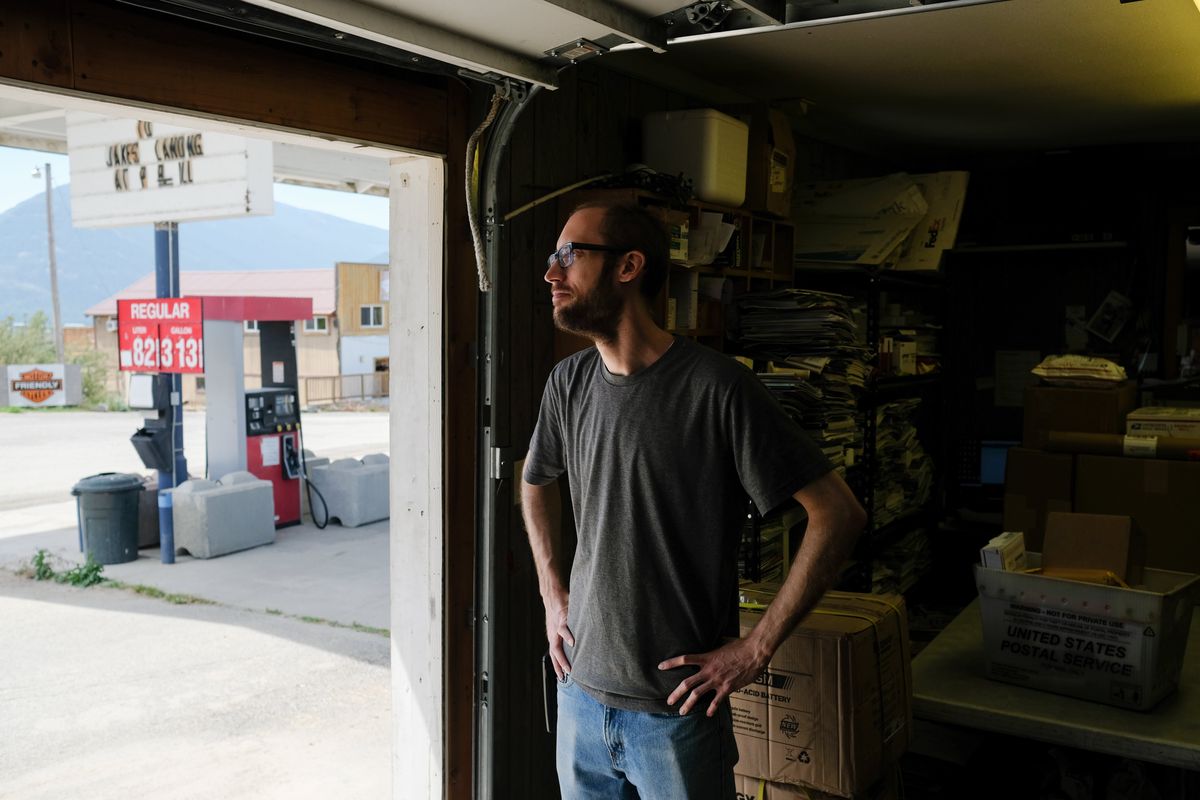‘We’re still here’: Border restrictions eased for short-term crossings, offering hope, but slow restart for businesses near Canada

Lars Jacobson was expecting a line.
Throughout the border closure, the owner of Jake’s Landing in Porthill, Idaho – a convenience store, gas station and shipping depot right across the Canadian border – had heard from his customers in Canada how eager they were to come back. Before the COVID-19 pandemic, the spot was frequented by Canadians who would make short trips to the U.S. for cheap food, gas or package delivery.
So when Canada finally eased restrictions last week for short-term travelers crossing to and from the country, Jacobson thought he would have dozens of customers, even just to pick up packages that had sat in his depot for more than a year.
But last week only brought about 10 customers a day. It was still more than throughout the pandemic, but significantly less than the hundred customers they may have seen a day before the closure.
“It’s been a little bit of an emotional struggle,” Jacobson said. “We had high hopes after all this time.”
Prior to last week, those wishing to come down for a short trip were still required to get a negative COVID-19 test within 72 hours. The tests are often expensive and difficult to find. Canada dropped the testing requirement last week for travelers crossing back into the country within 72 hours of leaving it.
It was welcome news to many small border communities in Washington and Idaho whose economies have struggled during the last 20 months.
Data from the Bureau of Transportation isn’t yet available for November and December, but data from October shows border crossing levels were still below pre-pandemic levels.
A report from the Border Policy Research Institute at Western Washington University called the differences in crossing requirements confusing.
Cross-border travel for families is “very costly and very difficult,” the report found. Despite removing the testing requirement, Canada still requires those crossing to use the ArriveCAN app to verify their vaccination status and proper documents. The U.S. does not require any app.
The report recommended the U.S. and Canada go back to a coordinated approach when it comes to border policy.
“We have yet to transition to a ‘post-pandemic’ border crossing environment, but if pre-pandemic travel volumes are ever to return, crossing the Canada-U.S. border will eventually need to be less confusing, costly, and time-consuming,” the report reads.
One place where nothing has changed is marine borders, or ferry crossings.
Short-term crossing without a test still is not allowed by ferry. Only land and air borders eased the Canadian testing requirement, meaning those who want to take a day trip between Victoria and Port Angeles, for example, would still need a negative COVID-19 test to get back into Canada.
Canada requires a molecular test, which is often more expensive. Those that can be done within 72 hours range from $175 to $250, according to the Black Ball Ferry website. Black Ball operates the ferry between Port Angeles and Victoria. When the border reopened for nonessential travel last month, vice president and co-owner Ryan Malane said the morning sailings to the U.S. were mostly booked. Most were probably snowbirds coming down from Canada. Travel from the U.S. to Canada, however, was much less popular, given the difficulty in getting into the country.
Jacobson said it will take the better part of a decade to make back what he’s lost.
“It’s going to take a very, very long time,” he said.
For now, the shop has expanded its hours to Monday through Friday after having only been open two days a week during the closure.
The family is also focusing on their Christmas celebration, a Santa’s Village that he and his family started last year in an effort to bring in business. It will run 2 p.m. to 7 p.m. this Friday and Saturday, and Dec. 17 and 18. He and his family decorate the property with more than 12,000 lights. He and his wife dress up as Santa and Mrs. Claus. The restaurant is open, and there are games and prizes for kids.
Still, Jacobson is hopeful. He’s heard from those who have made the journey across that their friends in Canada were waiting to hear how their experience crossing was. Others may start to trickle in once they become more comfortable.
Jacobson said the business’ survival is due in part to “the huge pouring out of humanity from our community.”
“We’re still here,” he said. “And it’s a miracle that we are.”